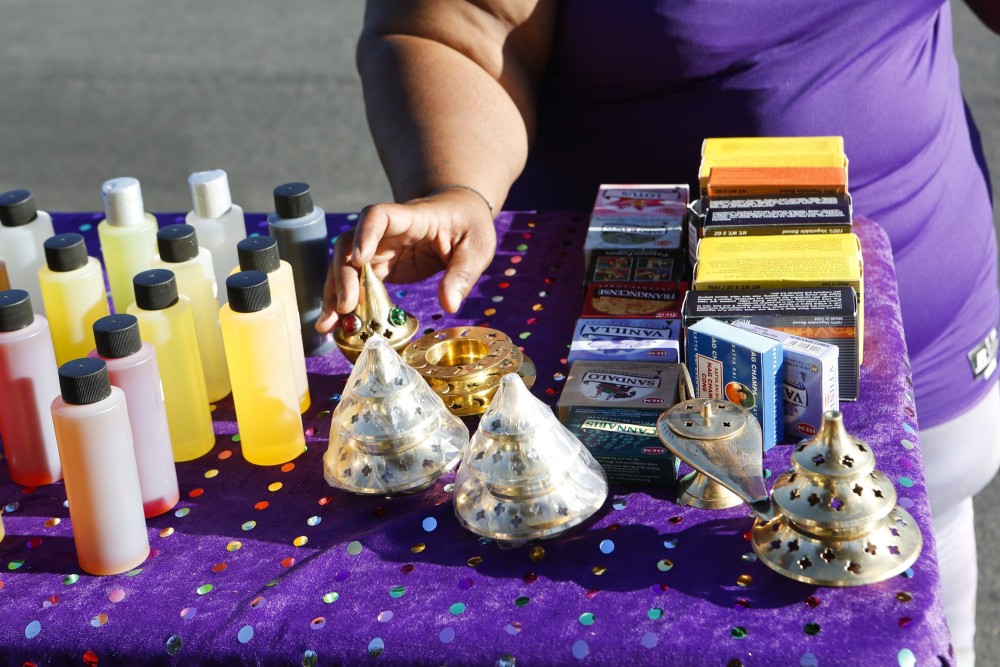By Emily Alpert Reyes
Los Angeles Times
WWR Article Summary (tl;dr) A revised proposal, unveiled at an L.A council committee meeting Monday, was an attempt at a compromise between shops and street vendors. Shops would not be able to simply prohibit vending on the adjacent sidewalks, but property owners would be alerted when sidewalk sellers seek permits to do business outside their doors. The shop owners would then have a chance to lodge an appeal.
Los Angeles Times
Brick-and-mortar businesses in Los Angeles would get a chance to oppose vendors planning to set up shop on adjacent sidewalks but would not be able to turn them down outright under a revised proposal for new regulations approved Tuesday at City Hall.
As L.A. crafts rules to legalize and regulate the vendors who hawk ice cream, hot dogs and other food and goods on its sidewalks, business groups have pushed for property owners to be able to decide whether vending can happen outside their doors.
Shopkeepers have argued that sidewalk vendors can undercut their business and that they have blocked and sullied nearby walkways.
Street vendors and their advocates countered that it would be unfair to give shops that kind of veto power over other entrepreneurs.
The ACLU of Southern California, the National Immigration Law Center and other groups said in a letter that the idea raised “grave legal and constitutional concerns” and could ramp up the risk of extortion.
The revised proposal, unveiled at a council committee meeting Monday, was an attempt at a compromise.
Shops would not be able to simply prohibit vending on the adjacent sidewalks, but property owners would be alerted when sidewalk sellers seek permits to do business outside their doors. They would then have a chance to lodge an appeal.
The exact details of the process still have to be worked out by city staffers, but Councilman Curren Price proposed something similar to the city system for permitting sidewalk dining.
At a Monday committee meeting, lawmakers also loosened some of the proposed rules surrounding where sidewalk vendors can set up on each block, which vendors had criticized as too complicated and restrictive.
After a debate punctuated by cheers and boos from the crowd, a divided City Council voted Tuesday to back the revised set of proposed rules and ask city lawyers to start drafting the new ordinance. The proposed law still has to come back to lawmakers for final approval.
Councilman Bob Blumenfield unsuccessfully pushed to keep the idea of an “opt out” for neighboring property owners on the table, arguing that lawmakers should have an opportunity to decide between two versions of the proposed ordinance — one with the veto and one without. He suggested asking city attorneys to draft both of them.
Several other council members backed that idea, voicing concerns about whether businesses were aware of the new proposal and whether lawmakers had gotten enough time to review it.
But the council ultimately voted 11 to 4 to advance just one version of the proposed law. Price urged the council to press forward with his preferred version of the plan, arguing that it would protect vendors from extortion.
Blumenfield voted against it, along with Councilmen Mike Bonin, Mitchell Englander and Paul Koretz.
Price said he wanted to have a new ordinance in place by July.
Legalizing vending has been a longtime dream of sidewalk sellers who have staged protests and packed hearings at City Hall. More than four years have passed since local lawmakers first proposed permitting and regulating the throngs of vendors who do business across the city.
Last year, the city eliminated criminal charges for vending under the Municipal Code, but vendors can still get administrative fines. As the city has tarried in passing new rules to legalize sidewalk vending, many complain that the lack of legal approval has left them vulnerable to harassment and abuse.
Business owners, in turn, lament that unregulated vending has run rampant in some areas. The Hollywood Chamber of Commerce said that the delay in passing new rules, along with dropping criminal penalties, had created a chaotic “free-for-all” on Hollywood Boulevard and left it dangerously congested.
Under the proposed rules, vendors would be prohibited within 500 feet of crowded venues such as Dodger Stadium, the Hollywood Bowl, Staples Center, the Coliseum, Universal Studios and the Hollywood Walk of Fame.
Sidewalk sales could also be banned or restricted based on health and safety concerns in additional areas that will be picked out by council members in consultation with city attorneys and other staff.
The draft rules would allow only two carts per block on each side of the street in commercial and industrial zones. In addition, mobile vendors who sell food could do business in residential areas as long as each sale does not last more than seven minutes.














































































































































































































































































































































































